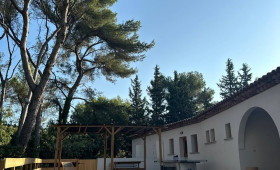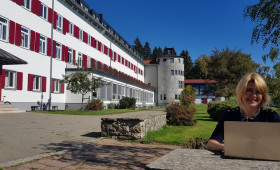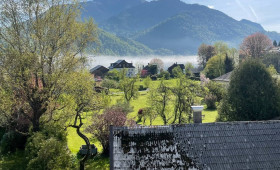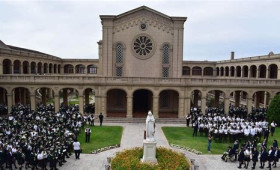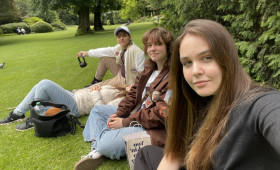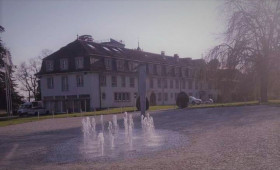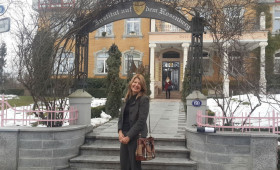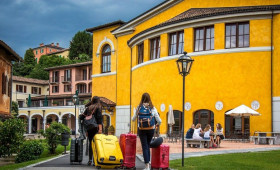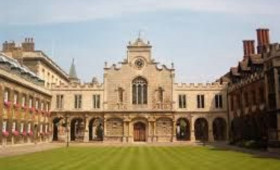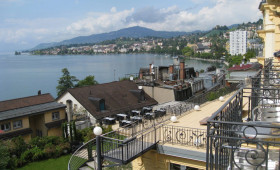INTERNATIONAL ВACCALAUREATE
03.10.175585
International Вaccalaureate

The International Baccalaureate programme, known as ‘IB’ was established in the late 1960s in Switzerland. The creators of the programme sought to combine all known systems of secondary education and to award successful students with a diploma that will be recognized by universities anywhere in the world. Since it was founded, the IB programme acquired worldwide recognition. Today is taught in some 2401 schools that are based in 129 countries. The level of education provided in IB schools is always above national standard.
International Baccalaureate programme begins in high school and lasts for two years. Its academic programme focuses on an in-depth study in six subject areas belonging to different groups of knowledge. Three subjects are studied at the standard level (150 hours of study for each subject) and three at the advanced level (up to 240 hours per subject).
The programme is focused on the development of analytical thinking and research, which consists of experiments and essay work. At the end of the course, students write an essay of least 4000 words about the research they conducted during their studies, under the guidance of their teachers. In addition to that, all students are involved in public life and volunteering projects.
WHAT IS TAUGHT AT THE IB
As was already mentioned, IB students choose six subjects from various branches of science, deciding early on, which subjects will be studied at the general level, and which will be studied profoundly. Usually, the subjects students chose to study at the advanced level are the same subjects they are planning to study later at the University plus their native language.
The combination of subjects studied by an IB student will look like this:
1. Student’s native language and world literature. IB schools go to great lengths to find the teacher for each language, native to their students, but in case the language cannot be taught the student would usually select any foreign language.
2. A foreign language and literature in that language.
3. Social Sciences (history, psychology, geography, philosophy, business, etc.).
4. Science (chemistry, physics, biology, ecology)
5. Math
6. An additional discipline selected from any of the following subjects: music, design, theatre arts, mathematics at the advanced level or one of the subjects from group 2, 3 or 4.
In addition to their study programme, all students have to complete the following modules:
• The theory of Knowledge (TOK): a broad philosophical course called "The theory of Knowledge" consists of the theory of research and modern learning. In this course, students learn to present their opinions and participate in the scientific debate.
• Creativity, Action and Service (CAS): For this course, students have to complete a certain amount of work for each of the three module areas: "Creativity" presupposes participation in creative activities such as reporting for the school newspaper, or the penning of the scripts for school events. "Action" centres on physical activities, such as dance, sports, or theatre. "Service" refers to any volunteer activities students might get involved in volunteering with the disadvantaged or protecting the environment. The CAS was created to reveal and develop students’ talents, foster caring citizens and teach them teamwork.
In order to complete the IB programme, each student must write an Extended Essay of minimum 4000 words. In this essay, students will report on the research in a chosen subject area, which is carried out under the guidance of a teacher.
Why is the IB programme unique
• The IB programme diploma is accepted worldwide, giving the graduates an opportunity to continue university studies anywhere in the world.
• The IB programme educates a well-rounded person.
• The IB programme encourages students to explore and appreciate other cultures and to develop communication skills.
• The approach to education is not encyclopaedic. Rather, the IB programme emphasizes teaching students how to research and analyse.
• The IB programme provides students with a broad general education while placing emphasis on study areas that are relevant to the interests and the future plans of each student.
• IB’s academic programme instills students with the skills that will enable them to succeed in the competitive modern world.
The IB programme – enrolment procedure
The admissions committee of an IB school consists of the program coordinator, teachers, counsellors, and administrators. When reviewing applications, the committee takes into account the following factors:
1. Entrance exam scores in English language and math.
2. Previous academic performance.
3. Recommendations from previous teachers of English and Mathematics.
4. Support and approval of student's parents in their child’s decision to follow an IB programme.
5. A motivation letter.
Applications are submitted in the autumn and winter, with exams and interviews taking place in the spring.
How to receive an IB diploma
Despite careful screening, not all IB students manage to graduate and receive the diploma.
To successfully complete the program students need to pass exams in all six subjects, submit one essay and two coursework (TOK), work for at least 150 hours for a social program (CAS) and score at least 24 points. The average IB score is 29, but to enter top-universities students must earn at least 35 points.
Evaluation occurs on a 7-point scale, with 1 being the lowest grade and 7 the highest. Three points are awarded for the essay and coursework. The maximum score that can be obtained is 45 points.


